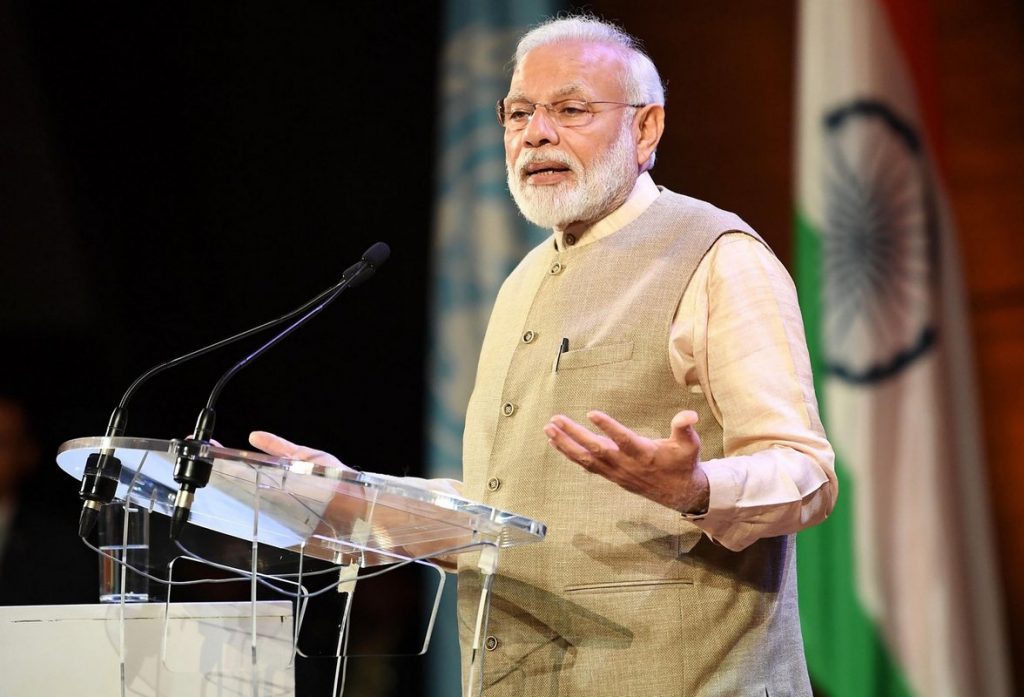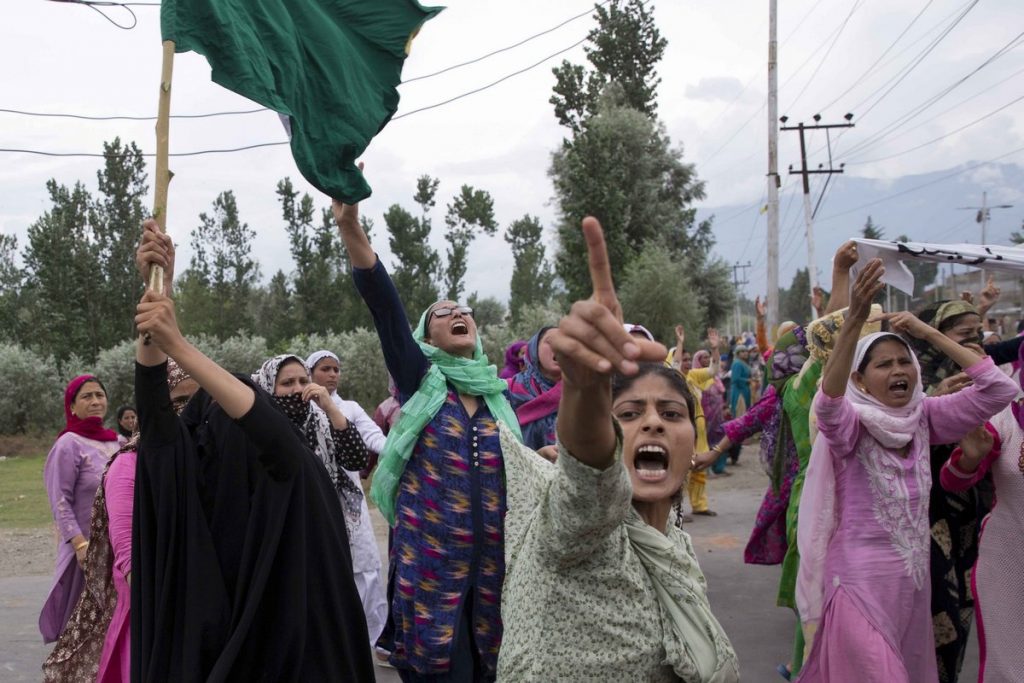A group of Indian opposition party leaders who had traveled from New Delhi to Indian-controlled Kashmir on Saturday was refused entry into the regional capital on Saturday.
The delegation of opposition leaders, led by the Indian National Congress’ Rahul Gandhi, said they were flying to the territory’s capital to “assess the ground situation,” as an “attempt to review the reality in the region after the abrogation of Article 370.”
But on arrival to the Srinagar airport, the delegation was not permitted to exit, according to INC party spokesperson Pranav Jha, who said that the group is now en route back to New Delhi.
If the situation in Jammu & Kashmir is "normal" as the govt claims, why has the delegation of Opposition leaders led by Shri @RahulGandhi been sent back from Srinagar airport?
What is the Modi govt trying to hide? #RahulGandhiWithJnK
— Congress (@INCIndia) August 24, 2019
The group had decided to travel after local authorities had requested them to stay out of the disputed region.
Article 370 granting special status to the state of Jammu and Kashmir — which encompasses the area of the disputed Kashmir region controlled by India — including the power to have its own constitution, flag, and autonomy over all matters, save for certain policy areas such as foreign affairs and defense.
The region has been the epicenter of an often-violent territorial struggle between India and Pakistan, as it’s been claimed in its entirety by both nuclear-armed neighbors.
In a highly contentious move earlier this month, Prime Minister Narendra Modi’s government scrapped the region’s special status under Article 370, reclassifying the state of Jammu and Kashmir from a state to a union territory. In the Indian system, the state government retains significant authority over local matters. But New Delhi has more of a say in the affairs of a union territory.
Now, non-residents will be able to purchase property in the valley and apply for jobs or scholarships that had previously been reserved for the state’s residents.
Experts believe that the move, a campaign promise made by Modi’s Hindu nationalist BJP party, could now open the way for a steady demographic change in the country’s only Muslim majority state.

In the run-up to the revocation of Article 370, India sent tens of thousands of additional troops into the state and cut off all internet and phone services, with a near-total communications blackout imposed throughout the region for the majority of this month.
Since residents have struggled to communicate or travel freely, journalists have been restricted in their reporting and human rights groups have warned of potential abuses due to the lack of international oversight enabled by the communications blackout.
A number of prominent opposition leaders have also been arrested, including three former chief ministers of Jammu and Kashmir state.
Following reports of the unrest on August 11, Gandhi said on Twitter that he was urging the government to take “take urgent steps to ensure the safety of every citizen in J&K and to lift the veil of secrecy.”
In response, Satya Pal Malik, Jammu, and Kashmir’s governor offered to send a plane for Gandhi and bring him to the region, local media reported.
Gandhi said that he would take Malik up on his offer, saying that while the opposition delegation wouldn’t need an aircraft, they wanted to be ensured the “freedom to travel & meet the people, mainstream leaders and our soldiers stationed over there.”
However on Friday, Jammu and Kashmir’s Information and Public Relations Department said that political leaders “are requested to cooperate and not visit Srinagar as they would be putting other people to inconvenience,” as the government is “trying to protect the people of Jammu & Kashmir from the threat of cross border terrorism and attacks.”

Writing on Twitter, the administration also said politicians would be “violating restrictions” that are still in place in many areas.
Senior Congress leader Ghulam Nabi Azad said he would be joining the delegation anyway, noting that it is important to take stock of the situation from the ground.
“On one hand, the government says that the situation is calm, and on the other, they are not letting anyone go there. I have never seen so many contradictions. And if the situation is calm then the leaders of so many political parties who want to go and see; help the government. If there is a problem, we want to help,” Azad said.
Last week, Indian’s Home Affairs Ministry announced it was relaxing some movement and communications restrictions that had been imposed, but on Friday, those restrictions were partially reinstated as protesters took to the streets.
News 18 reported organizers in Srinagar called on citizens to march to the United Nations’ local military observer office — known locally as UNO — and video put out by Reuters shows men holding signs saying “Wake up UNO.”
Barricades and barbed wires were erected to prevent people from marching to the UN office, with additional security forces being deployed to maintain law and order, News 18 reported.
 Alghadeer TV Alghadeer TV
Alghadeer TV Alghadeer TV
